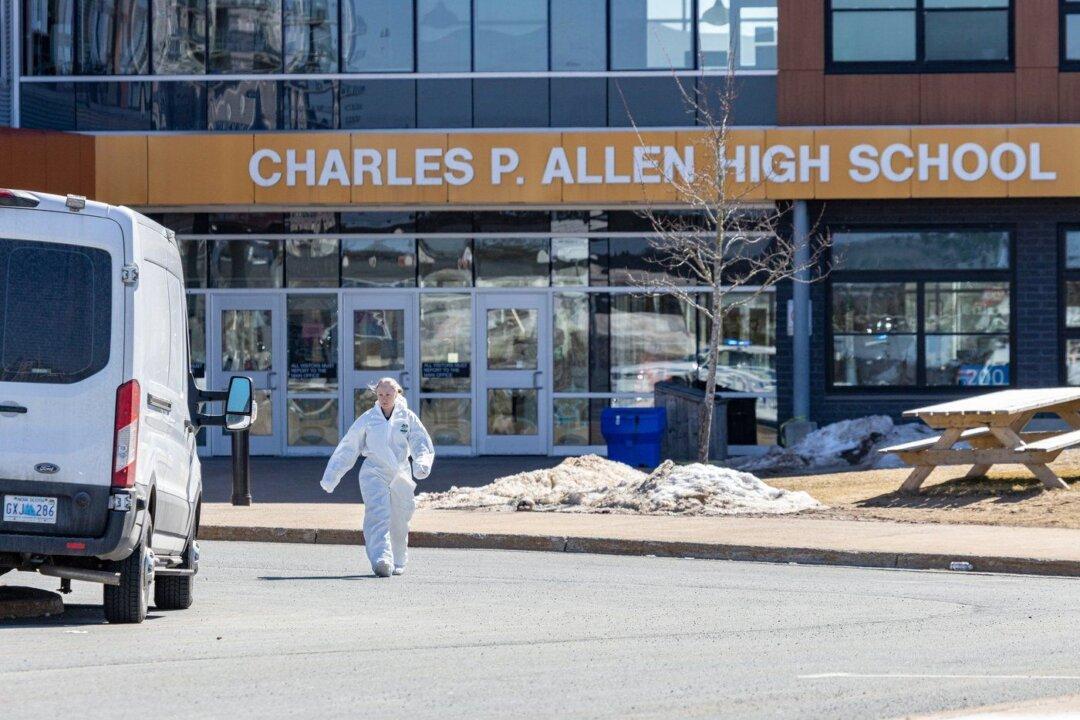A 15-year-old student was charged with two counts of attempted murder Tuesday after two staff members at a Halifax-area high school were stabbed the day before.
Halifax Regional Police issued a statement Tuesday saying the two victims—both employees of Charles P. Allen High School in the Bedford area—were listed in serious but stable condition in hospital.





